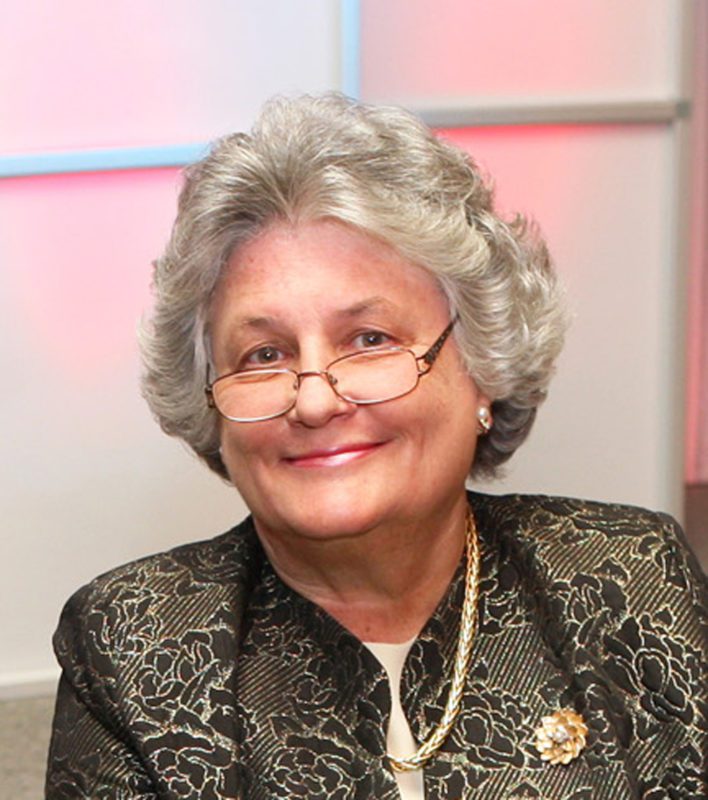
We look forward to the new year and new opportunities for innovation and growth in the government contracting community. This past year, the public and private sectors both experienced more emphasis and demand for cybersecurity, merging technology with health care, and how to best mitigate the insider threat.
As a part of an annual series, WashingtonExec reached out to those most knowledgeable and experienced in the federal contracting space. We asked executives in and around the Beltway for insight on the direction they see in the industry. Topics discussed include M&A activity, public/private sector collaboration, cloud computing migration, the incoming millennial workforce in defense/IT/health care, talent retention and more.
Next in the series is a conversation with Bobbie Kilberg, president and CEO of the Northern Virginia Technology Council.
Recent headlining topics have included merging technology with health care, cloud storage, big data, insider threat, and the internet of things. What will be of most interest in 2019?
In serving their government customers, our NVTC members are focusing on markets like data analytics and AI, cybersecurity and space. In addition, sectors like personalized medicine and health technologies, as well as unmanned and autonomous systems, are likely to continue to offer growth opportunities.
What will 2019 hold for government contracting? How’s today’s market affecting how you develop and retain talent?
In the government contracting sector, as well as with commercially focused companies, developing, recruiting and retaining top talent will be a huge focus area in 2019.
Amazon’s selection of Arlington for its HQ2 is a huge positive and will reignite the interest, particularly for millennials and young college graduates, in locating here to live, work and build a good career. And the Amazon ecosystem will attract more entrepreneurs, more innovation and more research — all essential ingredients for a world-class community.
At the same time, Amazon’s hiring needs definitely will intensify the competition among employers for skilled tech worker talent in a tight labor market that already is stretched very thin. The good news is that the region’s tech talent demands are being addressed in a big way by our region’s academic institutions. George Mason University, Virginia Tech, the University of Virginia, Northern Virginia Community College and other educational institutions are rapidly increasing the number and depth of their undergraduate and graduate technology degrees and research capabilities.
In addition, tech employers are looking to innovative approaches to finding the talent they need. One great example is a new tech apprenticeship program developed by Northern Virginia Community College to train and employ workers in high-demand areas like cloud infrastructure and cybersecurity. Building on an initial successful partnership with Amazon Web Services, NOVA is now expanding that program through a GO Virginia grant to include more employers.
Further, tech employers in our region are tapping into a tremendous source of talent with their veteran recruitment efforts. According to the Wall Street Journal, about 250,000 military personnel leave active duty each year nationwide, and the Washington area is home to about 210,000 employment age veterans, the largest concentration in the country. NVTC’s Veterans Employment Initiative has a 5-year history of assisting in the placement of over 16,000 veterans in technology jobs in Virginia and we will be expanding those efforts in 2019.
What excites and concerns you the most when looking at the future of GovCon?
A major concern shared by our members serving the federal government is security clearance reform. There are currently almost 600,000 initial security clearance applications in process (not including renewals) and as of June, the average security clearance process lasted 540 days. These types of delays severely hamper the ability of contractors to effectively perform their critical jobs in protecting the country.
Last year, NVTC joined a corporate coalition led by ManTech CEO Kevin Phillips and worked in partnership with Sen. Mark Warner, D-Va., to address the crucial need to reform and expedite the security clearance process. The good news is that progress is being made and we expect to see continued improvements into 2019.
I also have a major concern about the current government shutdown and the extreme politicization of Congress. Our political leaders need to get past partisan differences and get back to accomplishing the business of government.
What future collaboration topics and projects should take place between the public, private and academic sectors?
Virginia has been leading the way in public-private collaboration to address critical challenges and opportunities. One example is the new Commonwealth Cyber Initiative, a network of cyber research, innovation and learning connecting dozens of states public universities, community colleges and businesses with the goal of building a statewide ecosystem of cybersecurity innovation, commercialization, research and education.
GO Virginia is another initiative that provides incentives to localities and public and private entities in the commonwealth to foster more regional collaboration among business, education and government to promote private sector growth, job creation and workforce development.
What’s the most important tool or piece of advice to educating the next generation of defense/IC/IT/health care leaders?
The next generation of leaders needs to educate themselves on ever-changing trends and growing markets in all areas of technology. The greater Washington region’s technology business community is filled with influential leaders and companies. My advice to any emerging leader is to tap into this amazing community of tech leaders to learn from them. Organizations like NVTC are the perfect place to learn and build your network.
NVTC’s annual CXO Auction, coming up in February, is a great example, providing an opportunity to gain insight or receive advice from proven business leaders. Our region’s most successful executives are willing to share what they’ve learned in their careers to those on their way up. To me, that’s the greater Washington region’s competitive advantage — and the mark of a successful business community.

